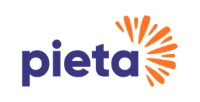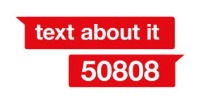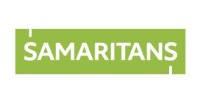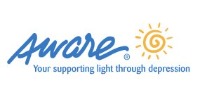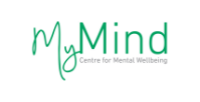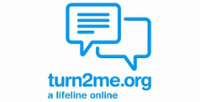If you have wounds and require medical help, please call 999 or go to A & E immediately.
You will receive the help that you need there. We recommend bringing a companion to be with you - if you can - to keep you company and help support you while you wait to be seen.
Get the Help you need
If you’re here because you Self Harm and need help, firstly, well done on visiting this page. There's no need to feel guilty or ashamed. You are in a safe place.
We understand that you may be dealing with a lot of emotions right now and are using Self Harm to cope with pain in your life. If you’re hurting yourself or have thoughts of harming yourself, then the first thing to know is that you can reach out for help and there is help available.
Any form of self-injury is a sign that a bigger issue needs to be addressed. It's hard to overcome alone, but you don’t need to be alone.
Talk to Someone You Trust
Reaching out to someone about self-harm can seem overwhelming. Your self-harm is very private to you. But do try to summon up the courage to talk to someone you trust and feel comfortable telling. They may already be worried about you and may be relieved to have the opportunity to listen & to help. They can help you take the first steps to successful treatment.
If you don’t get a positive response initially, please don’t give up. This may be the first time they've encountered self-harm and for someone who doesn't self-harm, it can be a hard thing to understand. It can come as a shock. But even if they don't understand it, they'll likely want to help support you. Sometimes it can help to give them some time to absorb the information. It's also useful to refer them to some of the resources in the list below to help give them an understanding of the issue and the role they can play in helping you get support.
If their reaction is negative and unhelpful, although it may sound hard to do, we urge you to try again to speak to someone else you trust – a friend, parent, relative, teacher or colleague. You can also reach out to one of the helplines listed below.
However hard it is to reach out for help, it's worth the effort. Once you do share your concerns, it’s common to feel a sense of relief. There are people who want to help you, who understand, who won't judge and who can help you.
Coping without harming yourself
It may also be necessary for you to create a list of distraction techniques and/or alternative coping strategies for managing your emotions. To learn more about techniques & coping strategies, visit the resources section of the Battlescars Website or contact Pieta.
Know your supports: accessing professional help

Doctors & medical professionals
- If self-harm is an issue for you, a helpful first step is to speak with your GP or your health professional. Remember, they are specifically trained for this and better still, they want to help you.
- Also, they’ve heard everything and never judge, no matter how unusual you feel your situation is. Your GP is an easy-to-access healthcare professional and a useful first step in your recovery.
- Simply talking to your GP or Nurse may provide relief. They can help you understand your self-harm. They may prescribe medication or other therapies to suit your particular needs.
Counselling
- You may need to speak with a counsellor, psychologist, or psychiatrist. Your GP can recommend or refer you to a suitable practitioner.
- Waiting lists are long for health service counselling appointments but many private counsellors provide low-cost or even free options if money is an issue.
- There are also free counselling sessions available via organisations such as www.Pieta.ie or www.turn2me.org.
- If you're lucky enough to work for an organisation with an Employee Assistance scheme (EAP), you may be able to access a course of free counselling sessions, so do check the terms of your scheme.
- It is important you find a counsellor you feel comfortable talking to and this may mean seeing a few people before finding one you ‘click’ with. If there is a family member you feel comfortable telling, it may be helpful to have their support in finding the right counsellor for you.
In an Emergency, attend A&E
- If you feel suicidal, have self-harmed or require medical attention, call 999 or 112 or head straight into your local Emergency Department.
- This is the quickest route to getting professional help,but attending A&E can also bring unique challenges to someone presenting with self-harm or other mental health issues. 3Ts have a useful guide with tips on attending A & E for self-harm to help you get the most from your visit. For more information, click here.
Follow Advice & Treatment Programme
- Seeing your GP and / or a counsellor is a great move. However, it’s important to be patient with the progress of treatment. Take comfort that you have started the road to recovery, but do remember that therapies can take time. It’s unrealistic to expect instant results, so it’s helpful to remember that the positive effects of treatment will come gradually with time and will be worth it. Meanwhile, following advice on distraction techniques etc can yield results immediately.
- It’s a marathon not a race and just like running, even slowly, you are always making distance!
Self Care: changes in lifestyle
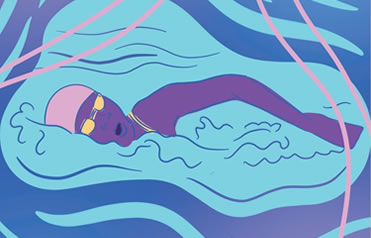
Whatever your treatment programme, some simple lifestyle changes can really help with mood and in providing distraction when the urge to self-harm hits:
- Eat as well as you can – try to introduce more healthy foods i.e. lots of fresh fruits & vegetables, some meat/ fish/ tofu or chickpeas and tons of water will help to keep you hydrated and fuel your body which in turn helps your mind.
- Avoid Alcohol & Drugs – these ‘quick fixes" fix nothing and can make you feel a lot worse in the long run. Alcohol, for instance, is a recognised depressant. It also can remove inhibitions and lead to self-harming. If you need help with these, speak with your GP.
- Get Active – physical exercise is a great way of jumpstarting your way towards recovery and is a good distraction when you have the urge to self harm. Some activities free up your mind to focus on the activity and not on self-harming. But any exercise is helpful. It releases endorphins which increase feelings of wellbeing and can reduce pain & discomfort.
- Walk, run, swim, go to the gym, dance, roller-skate or hula-hoop. Get those limbs moving and notice how much your body loves to be engaged!
- Get enough Sleep – ideally 8 hours a night. Turn off phones or screens an hour before bed. Pick up a book or have a warm (not hot) bath or shower before bed. Sleep is its own medicine and a lack of sleep can negatively affect mood. So, get into good habits around bedtime to maximise the benefits of sleep.
Accessing support services and recommended websites
There are organisations available to help. You can talk in confidence to someone who will understand by contacting a helpline such as those listed on this page and in our Specialist Support Services listing.
It can be minefield seeking out well informed and safe information on self-harm online. There is a lot of ill-informed or unsafe content out there. We recommend some helpful and safe websites below.
Free 24 Hour Support service with therapeutic approach for people in suicidal distress, who engage in self-harm, are particularly low or who are bereaved by suicide. See website for branches.
- Freephone 24 hour Helpline: 1800 247 247
- Text HELP to 51444
- Call to book a therapy appoinment: 0818 111 126
- Web: pieta.ie
Text About It is a confidential text messaging support service that provides immediate support for anyone going through a mental health or emotional crisis – big or small. Crisis volunteers are available 24/7 for anonymous text conversations and the service is free across all networks. Text About It is ideal if you rather text than speak to someone face to face or by phone. If the short code doesn't work on your network (An Post/48), you can still use the service by texting HELLO to 0861800280. Standard network message rates may apply to this 086 number.
- Available every day 24 hours a day.
- Text About It is a free 24/7 text service. Text HELLO to 50808 to begin your conversation or text HELLO to 0861800280.
- Service is Free on Whats App.
- Standard message rates apply to 086 1800280 number only.
- Website: textaboutit.ie
Longstanding & trusted, Samaritans volunteers provide confidential support, befriending and listening to those in personal crisis, 24 hours a day, 365 days a year. 21 branches across Ireland. Also provide a Self-Help App. to keep track of feelings, get coping recommendations & to stay safe in a crisis.
- Helpline: Freephone 116 123 (callers from Rep of Ireland & N Ireland)
- Email: jo@samaritans.ie (Rep. of Ire) jo@samaritans.org (N Ire) email response issues within 24 hours)
- Web: samaritans.org
Providing online, telephone & face to face support and assistance to all affected by depression & bipolar disorder. Phone-in and Zoom peer groups provide support for anxiety, mild to moderate depression, bipolar disorder or other related mood conditions. Support & self-care groups take place daily.
- Support Line Helpline (Freephone): 1800 80 48 48 (10am-10pm daily)
- Email: supportmail@aware.ie (expect response within 24 hours or often sooner)
- Web: aware.ie
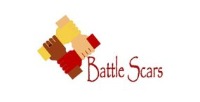
If you need help understanding self-harm, the Battle Scars Website is a very useful place to start. This UK based survivor-led charity provides peer to peer support and training in all areas related to self-harm. However, regardless of where you are, their website is filled with useful insights and practical information, along with a number of online resources such as literature, self-help tools and tools to be used when working with people who self-harm. Battle Scars started as a community group and their Facebook Page @battlescarsselfharm is a moderated support group open also to those outside of the UK. Excellent resource for anyone concerned about self-harm.
- Phone: 00 44 7410 380747 (N.B. This is an Admin telephone number – this is not a support or crisis number)
- Email: info@battle-scars-self-harm.org.uk
- Web: www.battle-scars-self-harm.org.uk
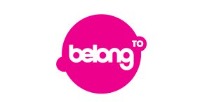
BeLonG To provides support and information for Lesbian, Gay, Bisexual & Trans (LGBTI+) young people in Ireland through a number of support services. If you are LGBTI+ and have questions, worries, or just need to have a chat in a safe space, BeLonG To can provide you with information, support, and a listening ear. BeLonG To support youth groups around the country where you can be yourself, meet new people and seek help. Monday Chats are a free service for 14-23 year-olds between 3-7pm. Book an appointment via the email or telephone number below.
- Email: info@belongto.org
- Helpline: BelonG To / Pieta 01 462 4792 to book free session counselling sessions
- Phone: 01-670 6223 (Mon-Fri, 9am-1pm, 2pm -5pm) – this is not a helpline.
- Web: www.belongto.org

Based in Gorey with a Branch in Arklow, Futures in Mind provides a range of suicide prevention services both locally and nationally for all ages including children & adolescents. Services include counselling, child & adolescent services, bereavement support and community outreach programmes including training. Also provide group sessions such as depression and bereavement support groups.
- Helpline: (0818) 30 30 61
- Email: info@futuresinmind.ie
- Web: futuresinmind.ie
The national centre for youth mental health, Jigsaw has branches in Dublin and across Ireland. Services include access to free therapy and expert mental health support, both online and in person, for children and young adults aged 12-25 years. Jigsaw.ie is a great resource of information & eLearning including support articles, videos and online courses for young people, parents/guardians and those working with young people. Talk to a Jigsaw clinician online through the Jigsaw Live Chat, Ask Jigsaw and Group Chats.
Web: www.jigsaw.ie
Providing fast and easy access to counselling and psychotherapyface to face and online. MyMind work to deliver affordable counselling with a sliding pay scale according to client.
- Email: hq@mymind.org
- Web: www.mymind.org
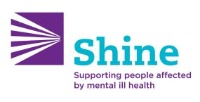
SHINE works with individuals & family members of those with mental health difficulties. They aim to raise awareness and provide information, education, counselling & support groups. Services include groups for people with lived experience of a mental health difficulty, family & supporters groups, recovery training and education groups. Find your local Shine service here.Helpline: 1890 621 631
- Email: Counselling Service phil@shineonline.ie
- Web: shine.ie

Available 7 days a week, 365 days a year, the Switchboard provides support and resources to all areas of the LGBTQIA community and to their families, friends and allies. Services include confidential helpline, married men's group and parents support service. A Drop-In Service is available weekly for sexual health information & support. Email for support or even to volunteer.
- Helpline (weekdays): +353 1 8721055 Mon-Fri 6:30 - 9pm
- Helpline (Sat/Sun & bank holidays): +353 1 5253113 4pm - 6pm
- Drop-in: Saturdays 2-4pm in Outhouse, 105 Capel St, Dublin 1
- Email: ask@theswitchboard.ie
- Web:theswitchboard.ie
Online mental health community providing support groups, peer support and one to one online counselling. Turn2me provide 6 free counselling sessions to anyone over 18 years living in Ireland. Website is a good resource of information on mental health issues. Contact: via form on the website
